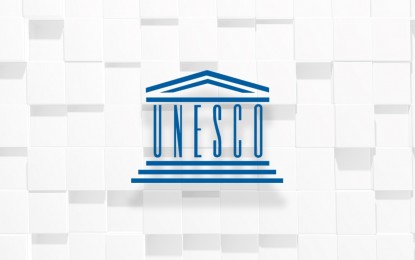
MANILA – The United Nations Educational, Scientific and Cultural Organization (UNESCO) has officially classified the Ampatuan massacre as “resolved”, proof that the country’s justice system in safeguarding press freedom is truly working under the Duterte administration.
Moez Chackchouk, UNESCO’s Assistant Director-General for Communication and Information, announced this in his letter to Ambassador Theresa Lazaro, acknowledging the concrete efforts of the government in bringing to justice the suspects in the 2009 massacre.
“I am pleased to confirm that we will classify these as resolved, both in the UNESCO Observatory of Killed Journalists and in the 2020 Director-General Report on the Safety of Journalists,” Chakchouk said.
A total of 58 people, including 32 journalists, died in the Ampatuan massacre, also known as Maguindanao massacre.
In a report of the Department of Foreign Affairs-United Nations and International Organizations (DFA UNIO) to the Presidential Task Force on Media Security (PTFoMS), it was likewise announced that UNESCO is ready to “provide support to the Philippines in the form of capacity-building for the judiciary on international standards regarding freedom of expression.”
Department of Justice Secretary Menardo Guevarra, chair of the PTFoMS, lauded UNESCO’s pronouncement saying the Philippine justice system is fair and effective.
PTFoMS Co-Chair and Presidential Communications Operations Office Secretary Martin Andanar also praised UNESCO’s decision.
“This is a testament to the Administration’s steadfast resolve to protect our media workers against violence and to defend freedom of the press. We are grateful for this latest recognition given to the Philippine Government by UNESCO,” Andanar said.
PTFoMS Executive Director Undersecretary Joel Sy Egco expressed elation to the latest achievement of the administration of President Rodrigo Duterte.
“With UNESCO acknowledging the finality of the Ampatuan Massacre, we can proudly proclaim to the world that any violence against our media workers will never go unpunished, that the so-called “culture of impunity” against journalists in the country has finally come to an end,” Egco said.
Egco said he is confident that the country’s rank in the Global Impunity Index by the Committee to Protect Journalists (CPJ) will dramatically improve.
“In view of UNESCO’s pronouncement, combined with the two Duterte legacy bills—the Media Workers Welfare Bill and the Freedom of Information Bill that we are pushing for enactment in Congress—the future is bright for the members of the Fourth Estate,” he said. “Once these bills are approved, we will be one of the best countries in the world where the freedoms of information and of the press, as well as the economic rights of journalists, are all protected.”
PTFoMS also gave its support to UNESCO’s project “Fostering the Role of the Philippine Judiciary System in Promoting Key Aspects of the 2030 Agenda,” a series of online and onsite courses and seminars based on the UN Plan of Action on the safety of journalists.
Such capacity-building project is an opportunity for the Philippines to build better relationships with the international community, it added.
The Philippine government’s collaboration with UNESCO will further strengthen PTFoMS’ mandate to protect the life, liberty and security of all journalists and media workers in the country.
As long as the Presidential Task Force exists, the investigation and prosecution of all cases of media violence in the Philippines will be guaranteed. (PTFoMS PR)
